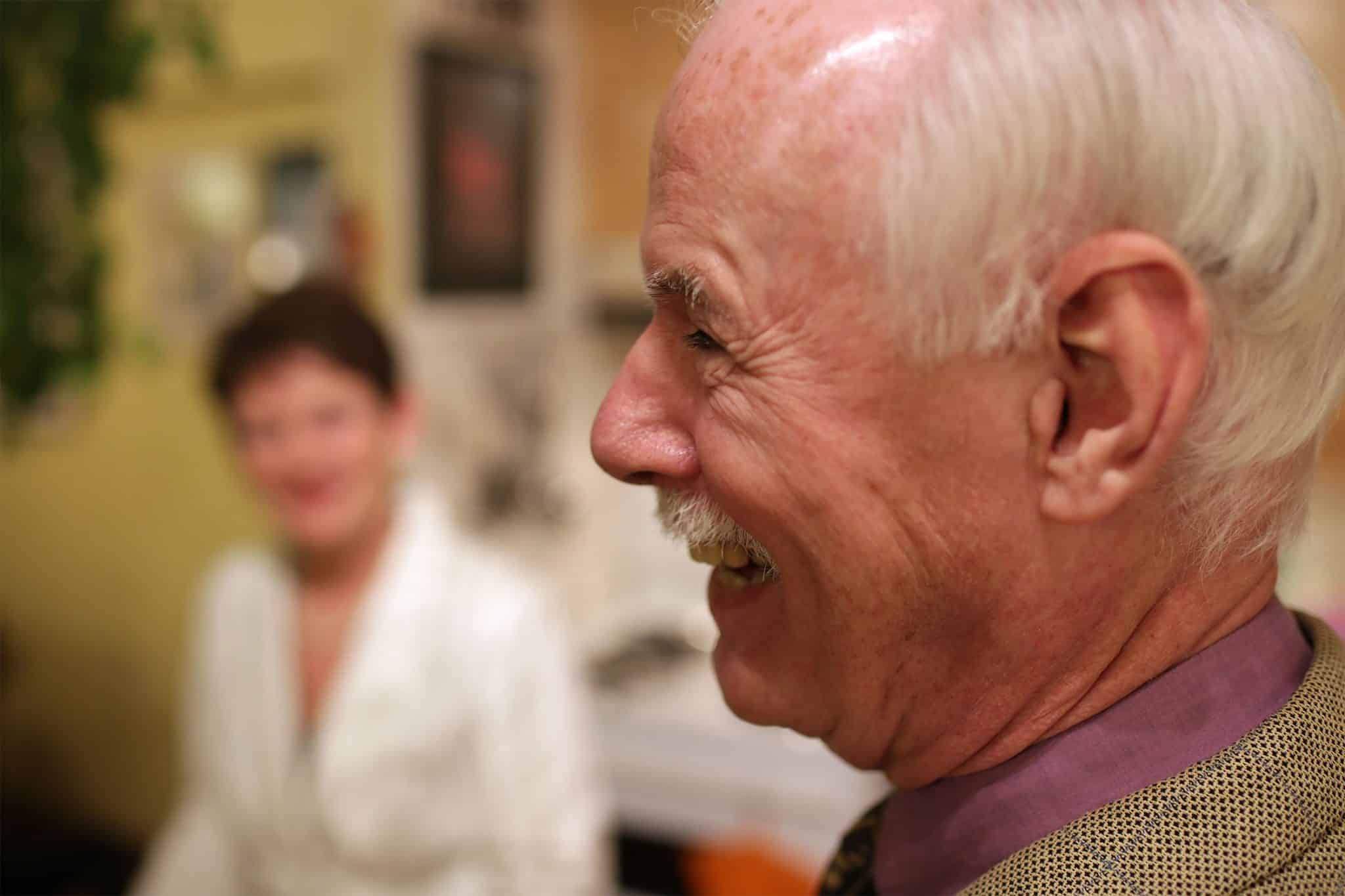MED-EL
Published Dec 11, 2013 | Last Update Mar 06, 2023
Anesthesia Facts for Cochlear Implant Surgery

We get a lot of questions from people who are preparing for their hearing implant surgery. One of the most common has to do with anesthesia.
Sometimes, people are concerned about anesthesia during implantation, but there’s very little to be worried about! Hundreds of thousands of individuals around the world have received hearing implants, from children less than one year old to adults more than 90 years old.
“I firmly believe that age itself is no contraindication for CI surgery…we’ve [implanted] several people in their 90s,” said Dr. Harold Pillsbury, chair of the Department of Otolaryngology/Head and Neck Surgery at the University of North Carolina-Chapel Hill.1
What is Anesthesia?
Anesthesia is a part of every hearing implant surgery. There are two types of anesthesia, general and local. Almost all hearing implant surgeries are done under general anesthetic. It is usually given shortly before the surgery and, depending on the specific surgery, the effects last approximately four hours.2
Is Anesthesia Safe?
Studies have found that hearing implantations in older adults are just as safe as in younger adults.
One study of 232 individuals found that 100% of those under age 79, and 96% of those over age 80, had no anesthesia-related complications.3
Another, of 70 individuals over age 70, found that “general anesthesia is well tolerated by elderly patients [during cochlear implant surgery…and] age alone should not be a contraindication when determining candidacy for this life-changing technology.”4
Additional studies show that the surgery is similar for adults over age 65 and under age 65.
“No statistically-significant difference could be detected in operative time [or] anesthesia time,” according to a study of 20 younger adults and 16 older adults, and “with an average of 4 hours of general anesthesia, no adverse cardiac events were noted in either the younger or older adults.”2
How Can I Learn More?
If you or someone you know is considering a hearing implant surgery and would like to learn more about the surgery or anesthesia, why not contact your local MED-EL representative? Our clinic finder tool will help you to locate the MED-EL clinic that is closest to you. Or, visit HearPeers to connect with others who have or are considering receiving a hearing implant.
References
- H. Pillsbury (personal communication, December 5, 2013)
- Labadie et al. (2000) Cochlear implant performance in senior citizens. Otolaryngology – Head and Neck Surgery; 123(4): 419-24.
- Carlson et al. (2010) Cochlear implantation in the octogenarian and nonagenarian. Otology & Neurotology; 31(8): 1343-9.
- Coelho et al. (2009) Cochlear implantation is associated with minimal anesthetic risk in the elderly. Laryngoscope; 119(2): 355-8.
MED-EL
Was this article helpful?
Thanks for your feedback.
Sign up for newsletter below for more.
Thanks for your feedback.
Please leave your message below.
Thanks for your message. We will reply as soon as possible.
Send us a message
Field is required
John Doe
Field is required
name@mail.com
Field is required
What do you think?
Martha baker
December 28, 2024
How long is anesthesia for a cochlear implant in an 85-year-old old? Would prefer local as I fear general will have a negative effect on cognition.
MED-EL
December 30, 2024
Hi Martha, thank you for reaching out. We recommend contacting your medical specialists as they have your patient data and can determine your needs best. We also recommend getting in touch with your local MED-EL team for any further assistance: https://www.medel.com/contact-med-el Kind regards, Gordana
MED-EL



Conversation
1 Comment